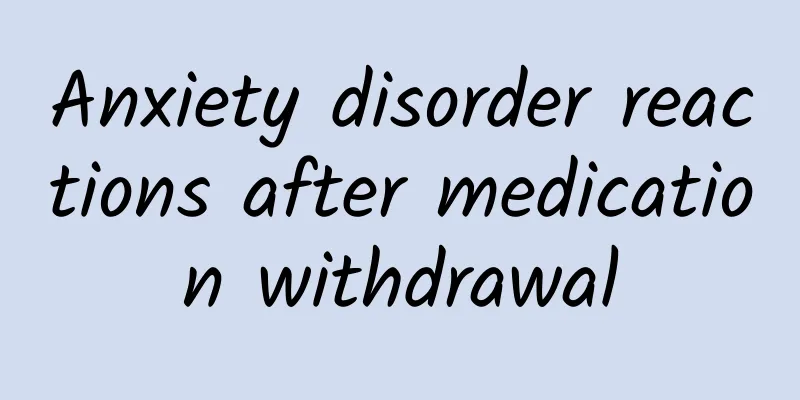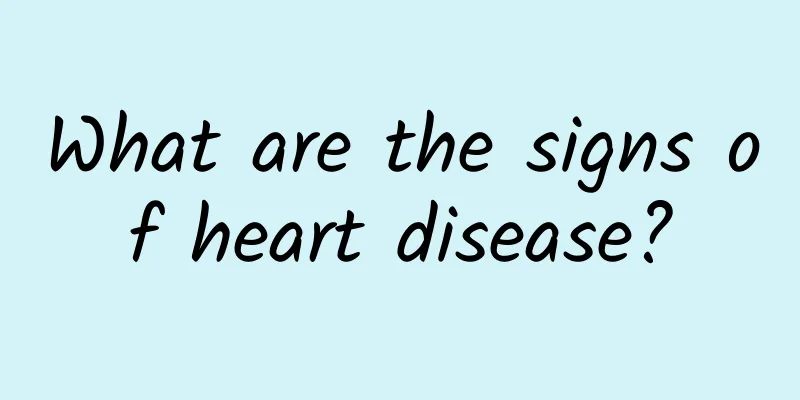Anxiety disorder reactions after medication withdrawal

|
For patients with anxiety who are taking medication, if the symptoms gradually improve, they can gradually reduce the dosage under the guidance of a doctor. If the condition continues to improve, they can finally stop taking the medication. This is considered active discontinuation of medication. Of course, it should be noted that if the anxiety disorder has not improved, the patient cannot stop taking the medication. Once the medication is stopped, the symptoms may recur, and may even gradually worsen, which will cause greater harm to physical health. About Anti-Anxiety Medications 1. Diphenylmethane derivatives anti-anxiety drugs Representative drugs: Antalol; Indications: Suitable for mild anxiety, tension, emotional excitement, and menopausal anxiety, uneasiness and other mental and neurological symptoms. Adverse reactions: drowsiness and dizziness. Long-term use produces tolerance. 2. Propylene glycol carbamate antianxiety drugs Representative drugs: tranquility; Efficacy: Suitable for mental anxiety, tension, mental restlessness, etc., and also used as a sedative and sleeping pill; Adverse reactions: May include drowsiness, weakness, rash, decreased blood pressure, and occasionally hematopoietic disorders (such as granulocytopenia). Long-term use may cause drug resistance. 3. Piperazine carboxylate antianxiety drugs Representative drugs: Zopiclone; Efficacy: Suitable for insomnia caused by various factors, including jet lag, work-related insomnia, and insomnia caused by anxiety before surgery. Adverse reactions: related to the dose and patient sensitivity, common adverse reactions include morning sleepiness, dry mouth, bitter taste in the mouth, muscle weakness, etc. Sudden discontinuation of medication after long-term use may cause withdrawal symptoms. 4. Aromatic piperazine antianxiety drugs Representative drugs: buspirone; Efficacy: This product is used to treat generalized anxiety disorder and other anxiety disorders. Adverse reactions: Gastrointestinal discomfort is the most common, and there are also dizziness, headache, excitement, insomnia, etc. Anxiety disorder not only brings tremendous pain and suffering to the patient's body and mind, but also brings heavy mental and financial burdens to the family. Therefore, many patients and their families want to know which anti-anxiety drug is more effective. Experts point out that anti-anxiety drugs are mainly used to alleviate patients' symptoms and have the effects of stabilizing emotions and calming the nerves. Because each drug targets something different, their effectiveness and side effects vary. |
<<: What to do if you have anxiety disorder and feel uncomfortable in the morning
>>: What to do about anxiety during pregnancy
Recommend
Chest enhanced CT scan of esophageal cancer
Esophageal cancer is a relatively common disease ...
The difference between huoshao and shaobing
Shaobing, as a traditional Chinese food, has alwa...
Improve blood circulation
Blood circulation is a closed circulatory channel...
What to do if you have a toothache due to a cold
Cold is a relatively common symptom. For cold pat...
Effects and functions of Rendan Pills
I believe many people don’t know what the therape...
Ureaplasma urealyticum positive in females
Ureaplasma urealyticum positivity is a virus that...
How many weeks of pregnancy can you give birth
Generally, the baby will be born after 40 weeks o...
Correct sleeping posture after stiff neck
Stiff necks often occur in life. It is easy to ge...
Which part of the hand should be massaged for cervical pain
As the pace of life quickens, people are under in...
What are the effects of Dendrobium officinale flowers
Dendrobium officinale is a relatively important C...
What foods are good for myocardial infarction? Dietary fiber is the main
Patients with myocardial infarction need to pay m...
The simplest way to treat body cold
Physical coldness has a great impact on health, e...
Head, chest and neck swelling
The head, chest and neck are swollen, which seems...
I have a dull pain in my lower abdomen when my due date comes.
For every pregnant woman, the doctor will estimat...
What are the signs of a relapse in bipolar disorder?
Many people do not understand what bipolar disord...









